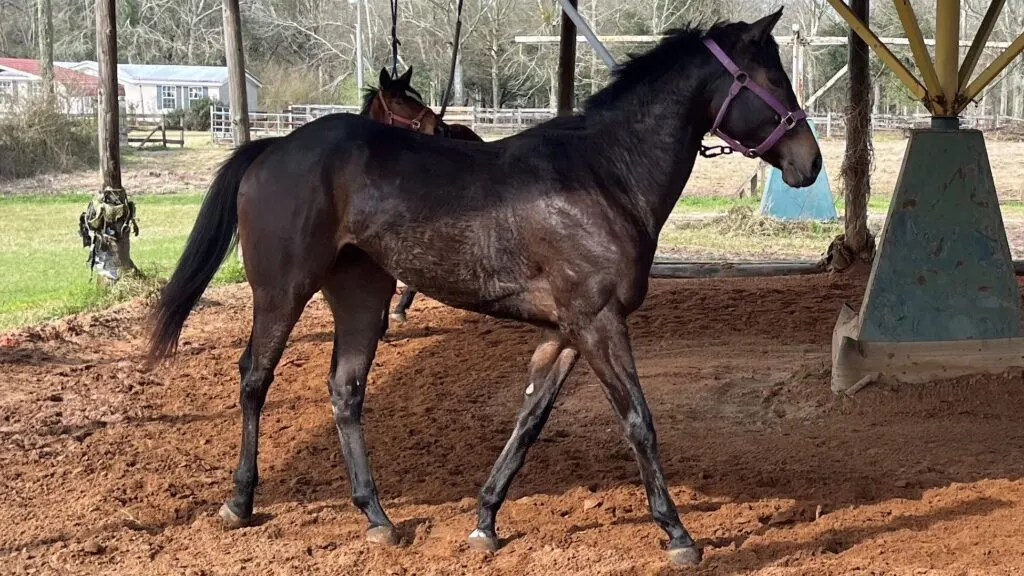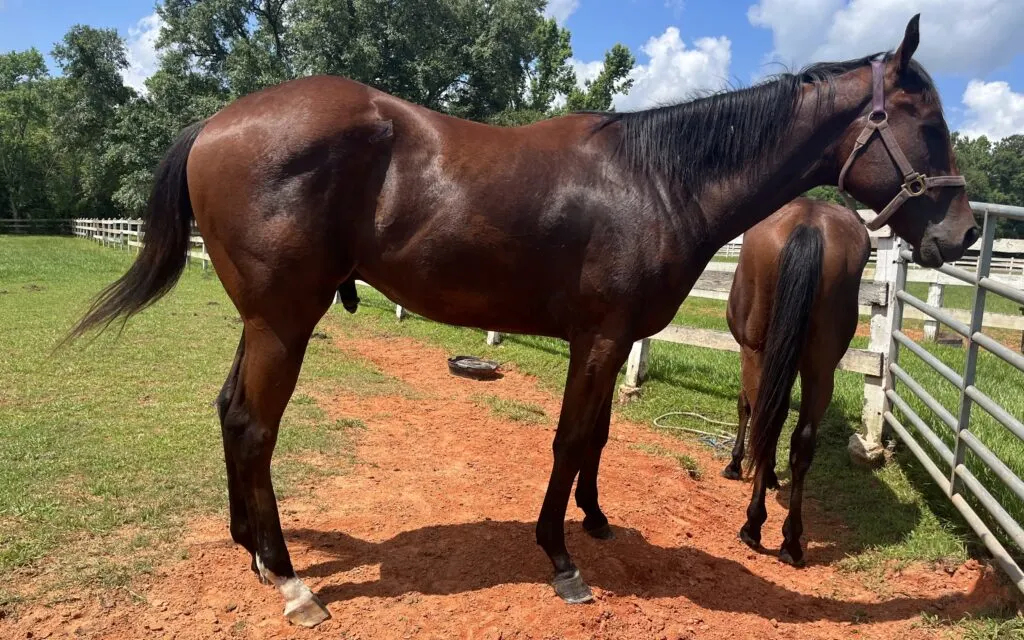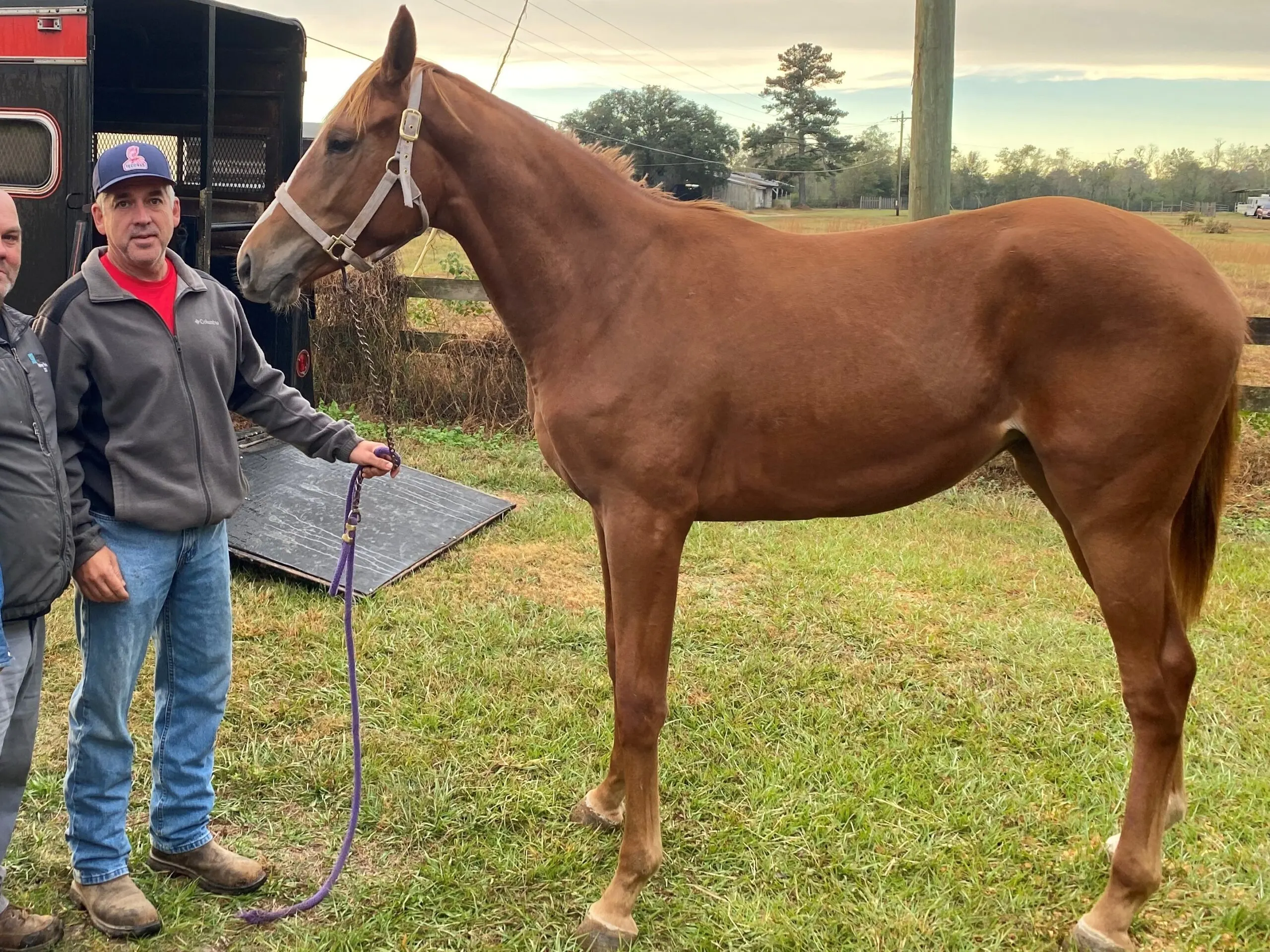Last updated: October 17, 2023
Horse racing is a sport that has been around for centuries. With all this time, you would think there would be one particular way to get rich from it, but there are actually three ways you can make money: betting, owning horses, or breeding them.
It is possible to get rich from horse racing, but if you’re looking for a safe investment, horse racing might not be the best idea. While some people can make a lot of money from betting on, breeding, and owning racehorses, it’s a risky business.
The horse racing industry is a competitive business. Many people dream of making their fortune in horses, but it takes more than money to succeed. It takes smarts and dedication too! We’ll guide you through some important tips for getting rich from horseracing.
Making Money in Horse Racing.
The best way to approach this high-risk, high-reward industry is by learning as much as possible about racehorses and the horse racing industry; knowledge is your best friend.

Some of the best sources for information are jockeys and trainers; they can tell you how a horse is working, why one didn’t run well, and if a horse just doesn’t have the talent to be successful.
Many people made fortunes betting, owning, and breeding racehorses; for example, men like Bob Baffert, Michael Tabor, and Walter Merrick all got rich on horses!
Bob Baffert is a successful horse trainer and owner who has trained seven Kentucky Derby winners and multiple other achievements throughout his lifetime. His estimated net worth is 30 million dollars.
Michael Tabor started as a bookie and gambler before becoming a prominent horse owner and businessman. His current net worth is over 150 million dollars, and he is often listed as one of Britain’s wealthiest persons.
Walter Merrick made his fortune as a breeder of racing quarter horses. He began his career as a ranch hand and rose to prominence as the owner and breeder of All-American futurity winner Easy Jet. He went on the syndicate the stallion for 30 million in 1980.
A good friend asked me the other day whether everyone could make money on horses. I told him an old joke I hope answered his question:
Q: ‘How do you make a small fortune in the horse business?’
A: ‘You start with a large fortune.’
Indeed, making money on horses – especially betting, racing, owning, or breeding – is notoriously difficult. Keeping horses is expensive, risky, and requires a lot of knowledge, patience, and deep pockets to manage losses. Similarly, betting on horses is like any other gambling – there are bound to be ups and downs and, often – more downs than ups.
Having said that, there are many positive stories in this regard – people have made and continue to make good money on horses – heck, some have become millionaires and billionaires!
In this article, we will discuss:
- Can you get rich betting on horse racing?
- What is the most profitable bet in horse racing?
- Can you get rich-owning racehorses?
- Can you get rich breeding racehorses?
- How much money does horse racing generate?

Can You Get Rich Betting on Horse Racing?
People have gotten rich betting on horse racing. However, it takes a lot of study about jockeys and horses. You have to familiarize yourself with wagering and especially be prepared to deal with close calls and losses.
The key to successfully making money on horse racing is to deal with those tough losses without letting them affect your decisions later in the day.
One mustn’t forget the fact that losing and winning streaks are inevitable parts of betting. These streaks can be due to good and bad luck, right and wrong decisions, good or bad handicapping (analysis), and other factors.
In addition to your own experiences, you will definitely hear story after story at the tracks of such tough losses and near wins. You might also hear stories of success. Unfortunately, most people only dwell on their losses and tough luck and give up.
To summarize, here is how to have a good betting experience at the races:
- Be prepared before the races and betting begin.
- Do your homework. Study everything you can about the horses and jockeys. There are horse racing betting systems that give you techniques for picking and guiding your selections. (These aren’t magical formulas, though).
- Be consistent in your betting.
- Expect bad luck from time to time.
- Learn from your mistakes.
What is the Most Profitable Bet in Horse Racing?
To know which bet is most profitable in horse racing, let us first discuss the types of bets available in the complex world of horse racing. If you want to learn about the types of bets in horse racing I wrote a detailed article I suggest you read.
Straight win single
Straight bets are simple. You choose a horse you like and wager on it to finish first. If the horse wins, you make money. If not, you’d lose money.
Win-and-place
For a win-and-place bet, you pick a horse to finish in either first or second position(or as governed by the terms of the race). Here, betting has double the stakes, but one would make less money than a straight win.
Show
The horse has to come in 1st, 2nd, or 3rd place for you – the ticket holder – to make money.
Multiple bets
These are bets in which more than one horse is backed in different races. So you have a double where you back two horses or a treble where you pick three horses.
Accumulator
The Accumulator and other multiple horse bets (pick 6) are the most profitable horse racing bets and the riskiest. To win an Accumulator bet, you must correctly forecast the winner of six races before the start of the first race.
Also, the winning of the first race is placed on the chosen horse in the second race, and so on until – if the first five have won – all of the accumulated winnings are placed in the final selection.
Naturally, the most profitable bet in horse racing is the accumulator bet. Note that it is still hard to win here because it is difficult to find one winner, let alone six. However, you can select the winning horse with some skill, research, and reliable horse betting systems to guide you.

Can You Get Rich Owning Racehorses?
Owning racehorses can be a very profitable business, but it’s not as easy as it may seem. There are many things to consider when owning racehorses, from the cost of keeping them fed and housed to the amount of money you stand to win or lose in a single race.
But if you’re willing to put in the time and effort, owning racehorses can be a very rewarding experience. But it is risky, and someone with experience will tell you that only two types of people can actually make money on them – jockeys and veterinarians.
In horse racing, you need luck and clairvoyance to make money. In 2018, an estimated 7.2 million thoroughbred horses were racing. Naturally, if all won their fair share of purses, all the owners would wind up losers.
The good news is that while your chances of winning may be slim, you won’t be throwing away money when you buy a horse. You also have a silent cost-sharing partner – the IRS. Owning a racehorse can provide you with tax shelter. You can also deduct the losses incurred by training and racing a horse (but specific rules apply, like your other income should be a business income, etc.).
If statistics are to be believed, only 2% of horses won $10,000 or more, and 17% of horses only made $25,000, which is the approximate annual cost of boarding and training a racehorse. In short: turning a profit or even breaking even in this business is a long shot.
I recently purchased a three-year-old Thoroughbred filly that is fast during morning workouts but hasn’t shown much potential or earned any money in races. I still have hope she’ll turn it around and start paying her way.
I also have five two-year-olds in training, and two are doing really well; it’s too early yet to tell if any of them will be fast enough to win any races. To earn money, you need luck and fast horses. Check out my guide on Can You Make Money Owning a Racehorse for further details.

Can You Get Rich Breeding Racehorses?
While breeding racehorses has the potential for significant financial rewards, getting rich is not guaranteed. Success depends on breeding quality horses, navigating the competitive racing industry, effective marketing, and a touch of luck. It’s important to enter the breeding business with realistic expectations and a solid plan.
Not everyone can make money by breeding racehorses. Only a lucky few thoroughbred owners have made millions by mating their racing stallions. The amount of money you can make depends on the number of mares you can attract.
Early in a stallion’s career, the number of broodmares he breeds will be based on his racing record and pedigree. However, if he produces a high percentage of winners, demand for his services will increase along with his stud fee.
For example, the Irish Stallion Galileo’s owner charges a fee of $700,000 per mating. His owners can charge this high fee because Galileo sired many winning horses. One of his offspring has also become an expensive stallion, and his owner commands a fee of $225,000 per mating.
A horse named Tapit earns $300,000 per studding, and his owner makes nearly $12 million per annum. Breeders also make money selling their offspring and through breeder’s fees. I have one friend that sells his yearlings each September at the annual yearling sale. Sometimes he makes money, but often he only covers his expenses.
But his primary earnings come from breeders’ fees. Breeders’ fees are money paid to the breeders of racehorses. Typically it’s 25% of the horse’s earnings. This money doesn’t come from the racing purse but from a separate account set up to support the racing industry.
Breeding racehorses can potentially be a lucrative business; however, it comes with inherent risks and uncertainties. Success in this industry often depends on various factors, such as pedigree selection, market demand, and the performance of the horses bred.
Creating a well-structured business plan, which outlines your breeding strategy, target market, and financial projections, can help mitigate some of these risks and increase the chances of turning a profit. While it is possible to become wealthy through racehorse breeding, it is essential to approach the endeavor with realistic expectations and a carefully crafted business plan to maximize your chances of success.

How Much Money Does Horse Racing Generate?
By now, I am sure you know that the income horse racing can generate for horse owners varies greatly. It all depends on how many horses one owns, how much of a horse one owns, and how much stake one has in the entire business.
The prize money per race will also depend on the kind of races your horse participates in (flat racing, jump racing, etc.) It will also depend on the place your horse wins in. You will also have to pay the jockey and your horse trainer.
If you want to know who gets the money in horse racing, here is the list:
- The owner receives about 80%
- The jockey gets about 10% plus a mount fee
- The trainer gets 10%
The risk and payouts are why even marketing managers of Horseracing boards caution people not to regard racehorse ownership as a wise investment strategy. You can always use your horse as a stud, which could help you make decent amounts provided your horse/s is a winner. Alternatively, you could sell your horse/s, and that is sure to fetch a decent amount too.
Conclusion
Who makes the most money in the horse racing business? The tracks? The people placing bets? The horse owners? The jockeys? The answer is that only the really good breeders that breed the best horses and the race tracks make money. Only 3% of thoroughbred horse owners make decent amounts of money.
So why would you want to own a racehorse? It is for the love of the sport. People who buy racehorses either have deep pockets or side hustles to fund their passion. The basis of horse racing is gambling, and like all gambling sports, it is fraught with risks and ups and downs.
FAQs
Who is the richest horse owner?
Alain and Gerard Wertheimer – (known as the Chanel brothers) are at the top position in horse ownership. Their net worth is estimated at £ 24,714,592,500.
Is it worth buying shares in a racehorse?
It depends. There are several benefits of buying shares in a racehorse, and if the horse wins, you will certainly get to collect your winnings. The main advantage of part ownership of a racehorse is that you get to go to the course on race days, pose with your horse for photos, and not have to call the vet at 5 in the morning if your horse catches the chills!
How much does it cost to own a racehorse?
In addition to the initial purchase price (which can be anywhere between $10,000 and $500,000), be prepared to shell out at least $45,000 to $60,000 in annual expenses on raising a thoroughbred.
Meet Miles Henry
An avid equestrian and seasoned racehorse owner, Miles Henry brings his extensive experience to the equine world, proudly associating with the AQHA, The Jockey Club, and various other equine organizations. Beyond the racetrack, Miles is an accomplished author, having published various books about horses, and is a recognized authority in the field, with his work cited in multiple publications.
🔗 Connect with Miles:
Twitter
Facebook
YouTube: Check out race highlights, horse care tips, and more!

